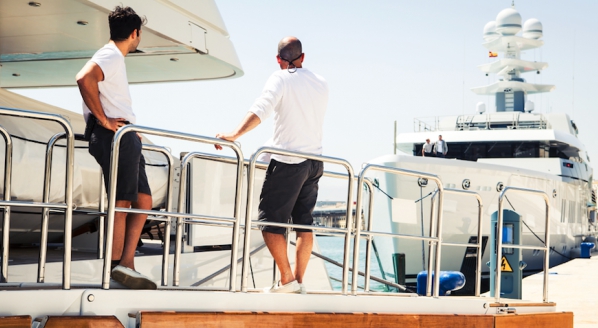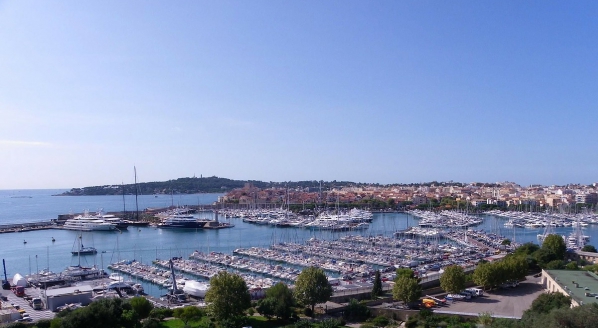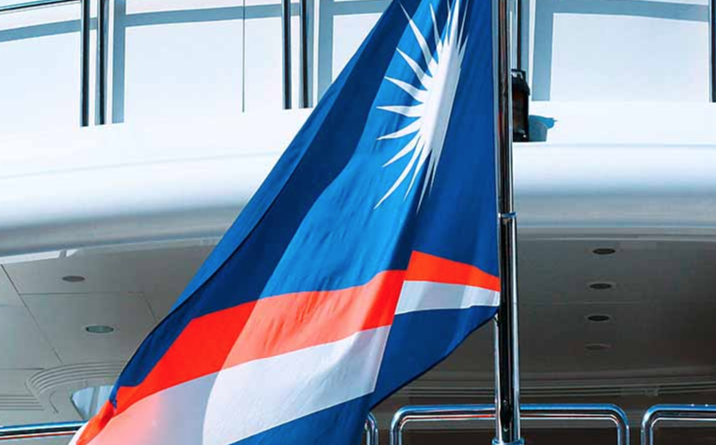A flag state’s duty of care during a pandemic
If a superyacht is denied dockage, as many cruise ships have, what is a flag state’s responsibility in this situation?
During the coronavirus pandemic, a number of cruise ships have been repeatedly refused permission to dock and disembark passengers amid precautionary measures to curb the spread of the virus. In light of these incidents, the International Transport Workers Federation (ITF) publicly criticised flag states for failing to protect seafarer and passenger health.
“There has been little or no mention of the responsibility and duty of care of flag state governments to assist seafarers employed on these vessels,” said ITF seafarers' section chair Dave Heindel. “Attention needs to be called on the failure of governments for not accepting their responsibility to remedy problems for its sovereign vessels. If the world continues to accept the Flag of Convenience system in its current form, it should be pointed out for its failures.”
One such incident involved the Bahamas-flagged cruise ship Braemar, which was denied entry by several Caribbean ports after reporting cases of coronavirus among its passengers and crew. The Braemar was even refused to dock in the Bahamas, its flag state to which it had changed course. Such reports raise questions for the superyacht industry; ‘Could a superyacht find itself in the same situation?’ and ‘What would the extent of a flag state’s responsibility be in this case?’.
“There is nothing that regulates a flag state’s duty of care in this situation. However, how a flag state responds will likely be an indicator of its quality and commitment to its yacht owners and operators...”
Patrick Bachofner, worldwide yachting director of International Registries, Inc. and its affiliates (IRI), which provide administrative and technical support to the Republic of the Marshall Islands Registry (RMI), explains that the International Maritime Organisation (IMO) recommends that governments implement policies and measures to protect public health and address COVID-19 without the introduction of obstacles to ship and port operations. The primary responsibility of flag state administrations is to implement and enforce national and international regulations for vessels registered in their jurisdictions. Vessels are also required to comply with the requirements of local jurisdictions.
“COVID-19 presents an unprecedented situation where the normal requirements may not apply,” says Bachofner. “In some cases, requirements are being tightened due to health concerns, and in others, such as vessel inspections, they are being relaxed. Superyachts experiencing difficulties gaining access to ports during this time will need to be handled on a case-by-case basis. There is nothing that regulates a flag state’s duty of care in this situation. However, how a flag state responds will likely be an indicator of its quality and commitment to its yacht owners and operators.”
While Bachofner confirms that a large part of the superyacht fleet has decided to remain in one location due to the possibility of confinement, the RMI Maritime Administrator had a recent case where a yacht was denied access by local port authorities due to COVID-19 concerns. “In this specific case, the yacht was low on fuel and provisions,” he explains.
“This particular port was the transit/provisioning point for voyage and, without the fuel and provisions, the yacht would not have been able to reach the next port of call. While flag state administrations are not able to regulate the requirements and rules of other jurisdictions, they are able to identify safety concerns and work with owners and local jurisdictions as these issues arise. Fortunately, this case was resolved locally by the captain and the authorities, and the yacht was able to obtain provisions and continue its journey.”
“As the situation is constantly evolving, it is critical that captains consider their voyage may be longer than anticipated and ensure that fuel and supplies are sufficient for longer durations...”
RMI is also able to offer advice to yachts that are needing to transit or relocate during this time. “We strongly encourage yacht captains to prepare and investigate what the current requirements are in a specific port or country, and check with their P&I Club and local agents prior to departure,” Bachofner continues. “As the situation is constantly evolving, it is critical that captains consider their voyage may be longer than anticipated and ensure that fuel and supplies are sufficient for longer durations.”
Due to the changing port restrictions, however, it is recommended that yachts remain in port and do not move unless it is absolutely necessary. “While the RMI, IMO, and other IMO Member States consider seafarers to be ‘critical workers’ to enable and facilitate crews joining a ship or being repatriated, there are still restrictions and challenges for crew changes, which could have a significant impact on a yacht,” Bachofner adds.
IRI has 28 offices worldwide with decentralised registry-related services. While some of the offices are currently open with limited numbers of staff, many of its offices are operating with staff working remotely, maintaining full capability to assist clients throughout the world without interruption. The RMI has a dedicated COVID-19 webpage addressing current guidance and links to relevant documents published by the RMI Maritime Administrator, port authorities, and the IMO, among others.
Profile links
Marshall Islands Yacht Registry (International Registries, Inc.)
NEW: Sign up for SuperyachtNewsweek!
Get the latest weekly news, in-depth reports, intelligence, and strategic insights, delivered directly from The Superyacht Group's editors and market analysts.
Stay at the forefront of the superyacht industry with SuperyachtNewsweek
Click here to become part of The Superyacht Group community, and join us in our mission to make this industry accessible to all, and prosperous for the long-term. We are offering access to the superyacht industry’s most comprehensive and longstanding archive of business-critical information, as well as a comprehensive, real-time superyacht fleet database, for just £10 per month, because we are One Industry with One Mission. Sign up here.
Related news
.jpg)
SuperyachtNews COVID-19 Advisory - optimising crew downtime
UKSA's Chris Frisby on how crewmembers can use time aboard inactive yachts to enhance their careers
Crew

SuperyachtNews COVID-19 Advisory – Concerns for superyacht crew
The financial security of superyacht crew relies heavily on the good will of owners, repatriation remains difficult
Crew

SuperyachtNews COVID-19 Advisory – yachts in the south of France
SuperyachtNews hears from Riviera Yacht Support about the situation for yachts in the south of France
Crew

SuperyachtNews COVID-19 Advisory – French VAT amendments cancelled
SOS announces that the 2020 amendments to French VAT law on charters have been cancelled
Business
Related news
NEW: Sign up for
SuperyachtNewsweek!
Get the latest weekly news, in-depth reports, intelligence, and strategic insights, delivered directly from The Superyacht Group's editors and market analysts.
Stay at the forefront of the superyacht industry with SuperyachtNewsweek




